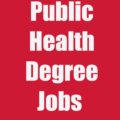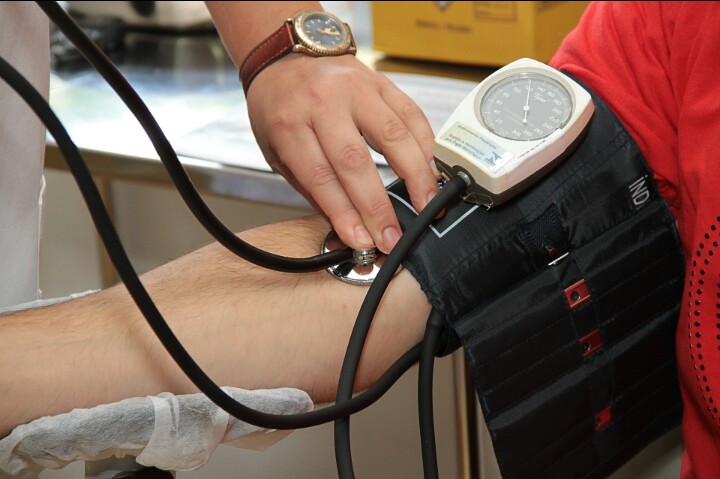The Highest-Paid Public health Jobs and Why
Public health professionals face a lot of risks in the discharge of their duties and a handsome paycheck at the end of the month is at least a fair reward for their life-saving activities. By pursuing a public health career, you will not only be saving lives but you will also be earning a decent pay cheque depending on the career path in public health you choose to pursue. One important factor that must however be taken into consideration is the fact that the salary outlook for public health professionals like in many other professions varies with specialization. Whether you intend on taking a public health job in the public sector, a Non-governmental organization, an international body, or a development institution the experience can be a very fulfilling endeavor as it offers you a very unique opportunity to serve the population while earning a decent income simultaneously. According to the Association of Schools of Public Health (ASPH), over a quarter of a million more public health workers will be needed globally by the year 2020.
Public health workers in most countries are currently stretched because they are serving more people and communities with fewer personnel and fewer resources. In addition, the diminishing number of public health staff due to training gaps also means that there are fewer public health workers globally (there were 50,000 fewer public health workers in 2000 than in 1980). Currently, there is a global shortage of public health physicians, biostatisticians, epidemiologists, public health nurses, public health educators, behavioral health experts, and holders of graduate degrees in healthcare. All organizations do not have equal financial strength, their varying budgets and capacities imply that they also have different salary scales for their employees. Public health careers are dynamic and the highest paying jobs in the field of public health for a particular location might not be the same for a neighboring state or location. See Why You Need An NYU MPH Degree
Factors that Determine Public health Career Salaries
- Types of Public Health Challenge that is Predominant in the Area
An infectious disease specialist will find things difficult in a location where the emphasis is on chronic disease and conditions. In such areas, the services of such a specialist will not be in high demand, and because the powers of demand and supply also affect salaries in public health, an infectious disease specialist who earns the highest salary in state A might earn a much lower salary in state B.
- The Number Of Skilled Public Health Manpower Available In The Area
The number of skilled public health manpower can significantly affect the salaries of public health career personnel. The inability of the available public health schools to meet the growing public health personnel demands of an ever increasing population leaves the world with a limited number of public health workers to play the critical role of health promotion and health protection. The current shortfall in global public health manpower is more critical in some areas than in others. In areas where there is an acute shortage of qualified public health career personnel to man, the many points of intervention, salaries, and compensation for public health personnel are often higher.
- Prevalence Of A Particular Disease Or Condition In The Area
The prevalence of certain conditions and diseases affects the salaries in some public health jobs. A public health fitness coach might not get a decent paycheck in an area where exercise is a common way of life or in a state where weight is not an issue. However, in areas where obesity and sedentary lifestyles are increasing disease burden and health care costs, these coaches will be in high demand and high demand also means higher pay most times.
- Previous History
The previous history affects public health careers in two ways. First, it affects salaries when moving to a new organization. Traditionally what you were earning in your previous positions sets the benchmark for what you will earn in your next job, this can be sometimes beneficial or detrimental to career personnel in public health. Secondly, some states and organizations have a known history of higher pay cheques, which implies that they pay above the national average most of the time.
- Educational Qualifications and Certifications
This is perhaps the biggest determinant of salaries in public health. Salary outcomes in public health are often tied to specialization and certification. If you want to advance your public health career, you will definitely need a master’s degree in public health or any of its specialties. Having an MPH, MScPH or higher degree such as Mphil, DrPH, or Ph.D. or their equivalent will give you an edge and the biggest access to the top opportunities and salaries in public health. For most public health personnel without an MPH, taking advantage of the many online MPH programs and certifications will ensure you keep your job, build your experience and ultimately position yourself to earn the bigger salaries in public health.
- Level of Public Health Experience Or Experience In Chosen Specialization
In order to advance your Public health career, experience is a key demand as in most other professions. Traditionally, the closer your field experience comes to the kind of skills and knowledge being sought after by an employer, the higher the offer you will receive. Often times an extraordinary experience might present you with out-of-range pay, but over qualification can sometimes disqualify you especially if your potential supervisor will be less qualified.
- Scientific Publication, Professional certification, Honors and Awards
Research is one of the bedrocks of public health and research experience is highly valued across the various core disciplines that make up public health. With this, your public health career can receive an unprecedented boost with a unique research paper, honors, or awards. Research in public health is documented proof of the additional skills, knowledge, and professional accomplishments that differentiate you from the rest of the pack. If anything else fails, this will definitely take you to the top of the food chain in public health. See Public Health Degree Jobs
The Top Paying Public health Jobs
Biostatistician
Biostatistics is a distinct discipline in public health and among the best mph programs. It deals with the application of statistics to a wide range of topics in biology. It also involves the collection, analysis, summary, and interpretation of data or inference from the results. Biostatisticians are important members of the public health community because of the significance of the tools and concepts of biostatistics in data analysis and drawing of inferences which are some of the major features of disease surveillance and disease control. Biostatisticians usually have at least a bachelor’s degree in statistics or mathematics. Earning a master’s degree in biostatistics will help you earn a higher salary in public health. According to the Bureau of Labor Statistics or BLS, the median salary for biostatisticians in the United States is $72,800 per year with the top 10% earning more than $119,000 per annum.
Epidemiologist
Epidemiologists are public health professionals who study disease outbreaks, disease patterns, disease locations, their causes, and how communities and populations are affected. The activities of epidemiologists are very critical in disease control and prevention because the framework of epidemiology focuses on the utilization of field information to aid in the prevention of future outbreaks and the control of disease spread. Epidemiologists work the academia, usually in Universities, Colleges, and other higher institutions of learning such as institutes of public health where they train and equip upcoming epidemiologists and other professionals with the needed skills in epidemiology. They also form the bulk of the health staff in many Health Departments and government organizations such as the Centers for Disease Control and Prevention (CDC) and the National Health Service. Another major place where epidemiologists play major roles is in international bodies and Non-governmental Organizations such as the World Health Organization (WHO), UNAIDS, Action Aid, and Fhi 360 among many others.
Epidemiologist Salary in the United States
According to the Bureau of Labor Statistics BLS, the median salary for epidemiologists in the US is $63,000 per year. In general, epidemiologists earn an average of between $65,270 to $108,320.
Epidemiologist Salary in the United Kingdom
An epidemiologist in the United Kingdom who has Specialist registration with the General Medical Council (GMC) or the UK Public Health Register can earn an average salary of between £76,761 to £103,490. Individuals with a master’s degree in epidemiology can earn between £30,000 to £40,000.
Epidemiologist Salary in Nigeria
The average salary of an epidemiologist in Nigeria ranges between =N= 250,000 to =N=650,000 per month
Environmental Health Scientists
Environmental Health is the field of public health concerned with how environmental factors- biotic and abiotic factors (living and non-living factors) influence human health, disease, and general well-being. The environment plays a significant role in disease etiology, understanding the interplay between various factors in the environment is the duty of an environmental health scientist. According to the Bureau of Labor Statistics LBS, the median salary for environmental health scientists in the US is $61,700 annually. Learn more about Environment Health READ: Environmental Factors Affecting Health
Behavioral Health Scientist
Mental disorders currently account for the highest burden of disability, especially in the United States. Today the global dynamics of diseases are changing and mental illnesses are now more common than cancer, heart disease, or diabetes. Available data shows that over twenty-six percent of all Americans aged eighteen and above meet the criteria for having a mental illness. On the global sphere, available scientific data from the World Health Organization suggests that about half of the world’s population is affected by mental illnesses. The current global cost of mental illness according to the global health body is nearly $2.5 trillion with a projected increase to over $6 trillion United States dollars by the year 2030. With the exploding mental health challenge worldwide, it is expected that earnings in the field of behavioral health will experience a dramatic increase with huge potential benefits for the public health workforce especially holders of graduate degrees in healthcare or MPH in social and behavioral health. The average salary for behavioral health professionals ranges from approximately $46,853 per year for a Research Associate to $82,341 per year for a Scientist. See The 5 Prerequisites for Sound Mental Health
Public Health Engineer
Health and Safety Engineers are employed to work in the construction sector, scientific sphere, and technical services. They are also employed in government agencies and non-governmental organizations. In manufacturing, their inputs ensure a hazard-free manufacturing environment and safer consumer products A Health and Safety Engineer also designs systems and procedures that prevent people from getting sick or injured. A public health engineer will normally have a bachelor’s or master’s degree in engineering, public health, occupational health, or industrial hygiene. The national average salary of a health and safety engineer is $81,726.
Salary Outlook for MPH Degree Holders
Virtually all the specializations or disciplines that constitute the core public health competencies have many job opportunities that can advance your public health career notwithstanding your abilities or interests. The annual range of salaries for career public health specialists with an MPH degree is presented below:
- Environmental health: $44,500-$143,600
- Public health practice: $41,200-$102,000
- Epidemiology: $38,100-$136,235
- Clinical research worker: $38,000-$51,500
- Health education: $33,000-$86,400
- International health: $32,000-$84,000
- Nutrition: $32,000-$71,000
- Religious organizations: $40,400
- Social assistance: $34,800
Public Health Nigeria an Interdisciplinary public health movement focused on health education, advancing fair public health policies, promoting fitness, healthy diets, responsible behavior, community health and general well-being.






4 Comments